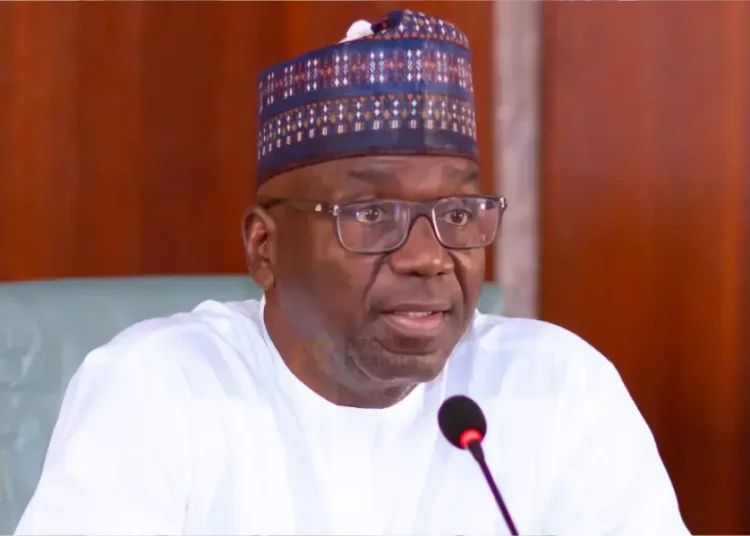Kwara State governor, AbdulRahman AbdulRazaq has called on relevant stakeholders to support the security personnel in protecting their mental health for them to be effective in carrying out their statutory duties.
Governor AbdulRazaq noted that mental health issues could have a profound impact on men’s health, affecting their relationships, work performance, and overall quality of life.
The governor stressed this at a conference on men’s mental health held in Ilorin, the state capital.
The conference tagged: “Men’s Mental Health Conference for Security Agencies in Kwara State”, was organised by Peace Progress and Unity Global Initiative (PPUGI) in collaboration with PFA Consulting Firm and the Kwara State government.
The conference, which has “Breaking the Silence: Mental Health Support for Our Protectors (Security Personnel and Stakeholders)”, as its theme, was attended by men and officers of various security personnel.
“Men are often socialised to conform to traditional masculine norms, which can discourage us from expressing emotions or seeking help for mental health issues. This stigma can lead to untreated mental health problems, contributing to increased rates of substance abuse, aggression, and suicide,” AbdulRazaq said.
Represented by his Senior Adviser and Counsellor, Alh Saadu Salahu, the governor listed factors affecting mental health to include biological, environmental, psychological and social issues, among others.
To promote men’s mental health, particularly in the security sector, he advocated the encouragement of open conversations, providing mental health training, fostering a supportive environment, and increase access to mental health services.
The Chief Medical Director, Kwara State University Teaching Hospital, Dr Ahmed Bola Abdulkadir spoke on “Burnout, Anxiety disorders and Depression: Clinical Signs and Symptoms, Prevention and Support.”
Abdulkadir, who is a consultant orthopaedics and trauma, described burnout as a condition in which a person suffers from ongoing accumulated emotional exhaustion from work-related stress and pressure is out of control and cannot sidestep.
“As a result, a person may feel depleted of energy, worn-out, weak, discouraged, have a negative attitude toward their jobs, or be unhappy at work, affecting their ability to work effectively and to maintain relationships with those around them,” he said.
He described mental health as vital to the performance and well-being of security personnel, stressing the need for supportive policies, services and stigma-free access to care.
We’ve got the edge. Get real-time reports, breaking scoops, and exclusive angles delivered straight to your phone. Don’t settle for stale news. Join LEADERSHIP NEWS on WhatsApp for 24/7 updates →
Join Our WhatsApp Channel










